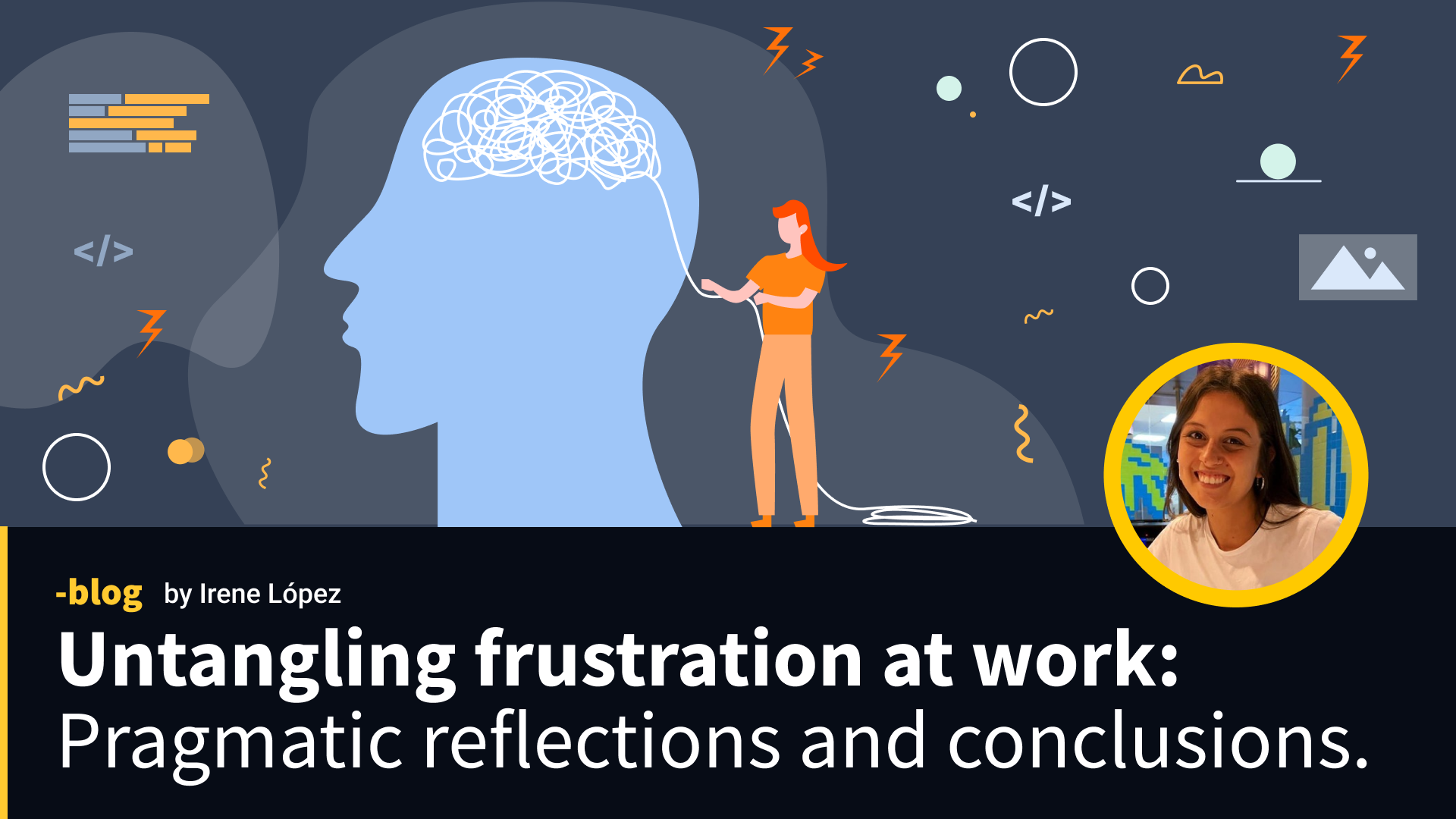During my years of work, I have experienced the feeling of burnout, reaching the point of extreme exhaustion where opening the computer became a challenging task and listening to the sound of Slack or Teams a trigger of distress or stress. The idea of this post is to put into words this problem that affects many people in a world that constantly promotes happiness and super-productivity but where this is not always possible.
What role does work play in our identity?
The reasons why work can exhaust us are diverse: the number of hours, the number of projects or their complexity, the context in which we work, among other reasons. However, it is important to reflect before drawing conclusions: What place does work have in our lives? What are we, or what do we have beyond work? How much time do we devote to it?
For many, it is a driving force, a means to achieve goals, shape how others perceive us, and fulfill personal aspirations.
It is essential to remember that work does not determine or define us as people; it should not be everything but just another means to develop ourselves day by day. Neglecting other vital aspects of our lives can quickly lead to burnout.
During the pandemic, a significant increase in working hours was followed for many remote workers. Needless to say, the magnitude of the increase may vary by industry and individual circumstances.
Back then, work was one of the few activities we could do. It made us feel busy and valuable and distracted us from the overwhelming reality we were going through. Now that we have regained our freedom, managing the activities that delight and renew us is essential to avoid falling into a routine.
The Importance of Effective Communication in the Workplace: Building Strong and Productive Relationships
Effective communication in a work environment is vital to expressing our ideas and opinions, communicating the tasks we will be performing, and asking for help at the appropriate time when we feel something is not working well. This way, we can prevent completely solvable issues from becoming serious problems.
Good and fluid communication with your team can save time and frustration.
A great opportunity is to use your daily meetings, planning, and 1:1 instances to honestly express how you are feeling and discuss your blockers, motivations, and workload. Active listening involves not only hearing the words being spoken but also paying attention to tone, body language, and other nonverbal cues to fully understand the message being conveyed. Ask clarifying questions, avoid distractions, forge robust relationships, and develop trust. It will translate into a more productive and positive work environment.
Breaking Communication Barriers: The Importance of Empathy at Work
During one of my 1:1 instances, my manager mentioned the word empathy in relation to work, something I had never considered before. How many times have we gone through a difficult call where the other person’s way of dealing with us could be better, where the expectations placed on our deliverables are very high, and it even seems like we speak different languages? It happens often that the language we share is different from our mother tongue. In those moments where we take the situation personally, we must try to think and understand the reality of the other. The expectations imposed on us often reflect external pressures that affect those who transmit them to us. Working at home is often challenging because there are distractions that do not appear in other work environments, such as a sick child, something as simple as visiting the mail, even because we come from different cultures and intercultural protocols are different.
It is also essential to take actions that get us out of those cumbersome situations by aligning with each other and organizing ourselves in the chaos:
- Set actual delivery dates.
- Get the requirements down to earth for a better understanding.
- Document everything in an email with a copy to everyone involved in the project, even if they are absent on the call, to record what was discussed at the meeting.
Having already raised the question of what place we give work on our lives, empathize with the environment, and organize ourselves, what can we do when we are exhausted? These are some of the practices that have worked for me:
- Seek out or generate non-client projects to distract and renew ideas.
- Take time away from the computer to clear your head and avoid making impulsive decisions.
- Prioritize quality sleep.
- Practice relaxation techniques like meditation and deep breathing to reduce stress and promote calm.
- Strengthen the skills you have beyond the work environment.
- ✨Go to therapy✨, seriously.
In conclusion, the modern work system tends to turn people into mere cogs in a machine, where productivity is valued more than well-being and personal fulfillment. However, remembering that we are people with needs beyond efficiency and production, beyond the bottom line, is vital. It is important to prioritize the balance between work and personal life. We must seek open and honest communication spaces where individual needs are recognized. Remember the importance of nurturing our passions and interests beyond our work occupations. Taking time for rest, reflection, and personal growth will allow us to face work challenges with a more balanced and healthy mindset.
It does not sound impossible to untangle frustration at work and build more humane spaces where well-being and personal fulfillment are as important as productivity.
I invite you to talk to a teammate about how you have felt or experienced these situations and how you have got out of them. :)
Finally, I made a talk about this in our company. If you prefer that format, please watch:





